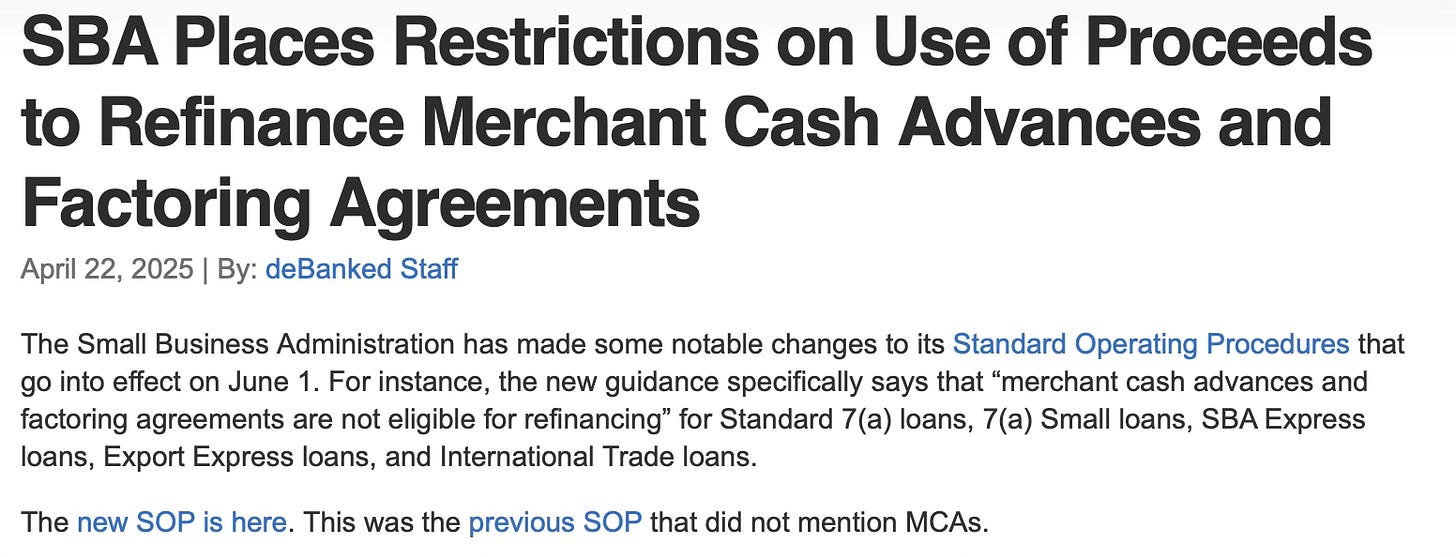Early stage capital is hard to find, so how do you fund a startup?
Before we get into it: some of you took issue with my calling out omega-6 as bad last week. The science is described in this study Synergic Effects and Possible Mechanism of Omega-6 Fatty Acids (ω-6) on Immune System, Inflammation, and Cancer
TL;DR — considering the contemporary dietary imbalance favoring elevated omega-6 consumption, too much can be bad when not in balance with omega-3, but more research is needed to consider things like genetics.
On to today’s topic:
💸 What to do if early stage capital eludes you
Early-stage capital is available—but it's harder to access unless you have:
First-year profitability or a clear path to it
Personal collateral (home equity, savings, etc.)
Since that’s not most of you, I went to Keith Kohler for info on how to get funding. Keith has been unlocking financing for brands from pre-revenue all the way to growth stage. He works with companies that don’t currently have a full scope of their financing options, are in a crunch-time situation with tremendous cash needs and require fast and accurate financing solutions, and/or don’t have a CFO or advisor.
For early-early stage, here’s Keith’s advice:
Look for local financing with Community Development Financial Institutions (CDFIs) with startup-friendly terms (like no collateral, rates below 12%, longer repayment timeframe).
Don’t rely on intake forms—go straight to senior business development contacts. Pitch your story like a college admissions essay: clear, personal, and mission-led (or whatever your ‘why’ is).
Many states have their-own custom loan programs, some of them based off of the SBA model. Notable ones include California and Colorado.
📈 Many local and national programs require a Business Credit Score that is considered low risk
An increasing number of Banks look at your business credit score in addition to your personal one—especially for smaller-sized SBA-backed loans.
How to build one:
Check your business credit (start with Nav, Dun & Bradstreet, or Equifax Business)
Make sure your suppliers put you on terms and report good credit standing to these agencies
Use NerdWallet to find vendors that report to business credit bureaus
Buy small items on net terms (30 or 60 days) and pay them off—this builds credit history
⚠️ SBA Lending Rules Just Changed
As of June 1, 2025, SBA loans can no longer be used to refinance:
Merchant cash advances (MCAs)
Factoring debt
This change hits founders using financing from platforms including Shopify Capital, PayPal Working Capital, and other MCA-style loans, hitting the the e-commerce sector particularly hard. However it is eligible to refinance a promissory note so if you can get a personal loan out there and pay down the debt you are more likely to qualify.
You can directly connect with Keith for a consultation at Keith@K2Financing.com
📃 Term Sheet Pitfalls
For more fundraising education, I highly recommend you sign up for this newsletter Term Sheet Pitfalls by Daniel Friedman and Chuck Cotter.
All my best,
Jennifer




